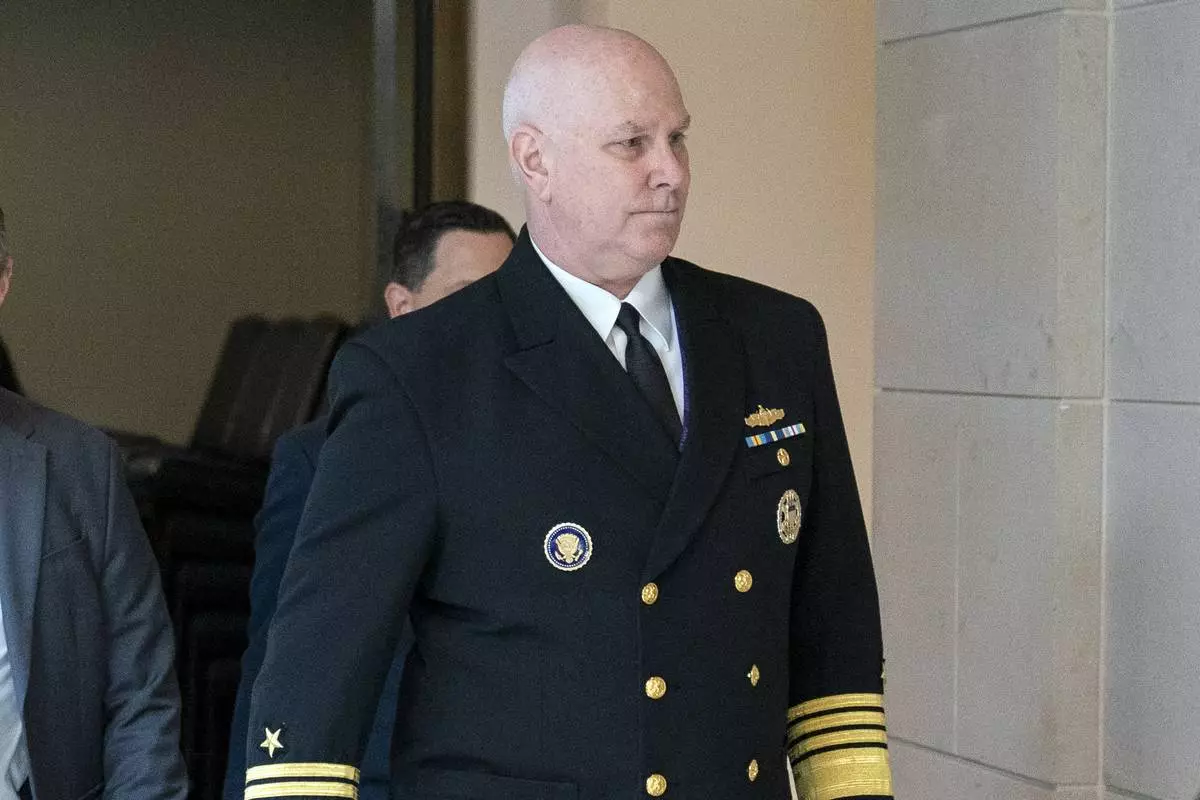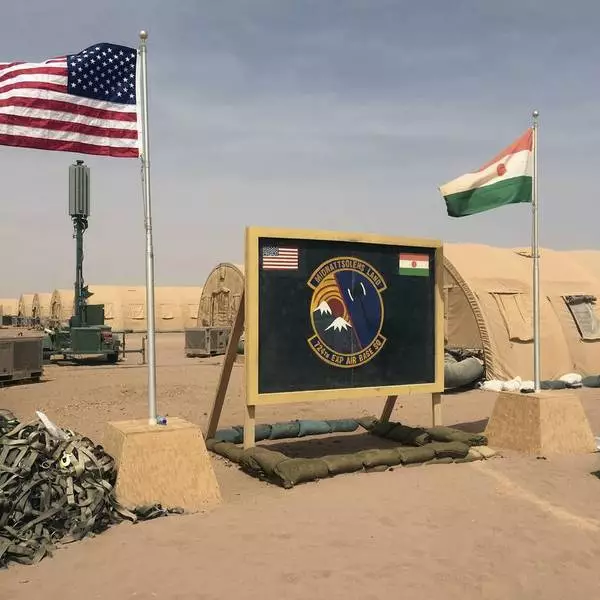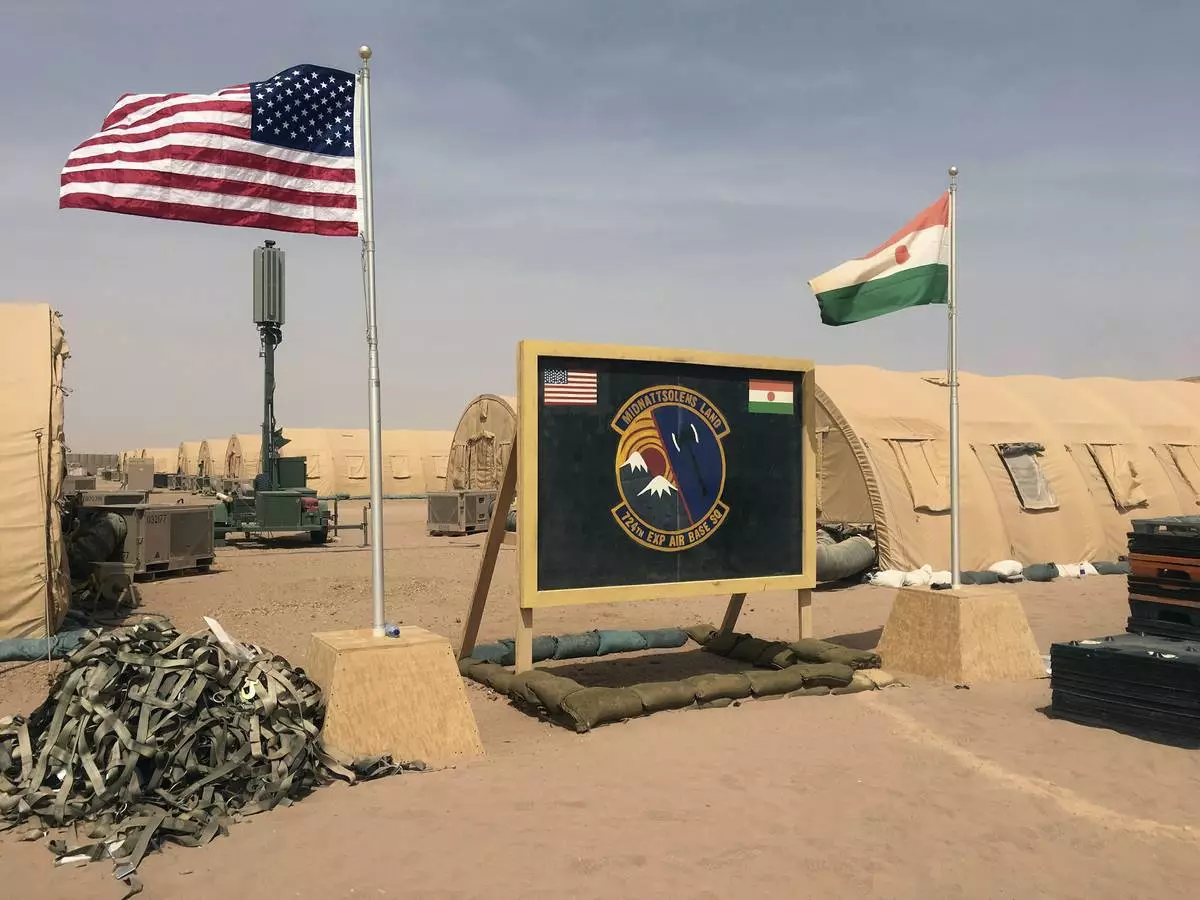President Donald Trump has made several incorrect or misleading statements about the five-year battle against the Islamic State group as he seeks to end what he calls "endless wars" and explain an abrupt abandonment of America's Kurdish partners in the face of a Turkish offensive.
He has gotten his facts wrong on at least five key points about the conflict.
TRUMP: THE U.S.-LED EFFORT TO DEFEAT THE ISLAMIC STATE GROUP WAS "A MESS" BEFORE I TOOK OFFICE.
It's true that he accelerated the military push in Syria, in part by giving U.S. commanders in the field more authority. But it was during the Obama administration that the Kurdish-led force was recruited, organized and trained to root out the Islamic State group.
Trump also incorrectly said on Monday that U.S. forces have been in Syria for 10 years.
The U.S. military under Obama began its push to counter the Islamic State group, sometimes referred to as the IS group or ISIS, starting in the summer of 2014. The effort started in Iraq, where the extremists had captured much of the northern and western parts of the country, including the key cities of Ramadi and Mosul. In Iraq, unlike in Syria, U.S. forces had a viable partner in the Iraqi government.
Ash Carter, who headed the Pentagon from early 2015 until Trump was inaugurated in January 2017, has acknowledged, "We took longer than we should have to get our act together" on an effective strategy to deal the Islamic State group a lasting defeat. But the campaign was hardly a "mess" when Trump took over.
In fact, Mosul in Iraq and Raqqa in Syria were on the verge of falling, and the elements for military success were largely in place. Iraq declared victory over the Islamic State group in December 2017, and the U.S.-backed Kurdish forces declared victory in Syria in March of this year. It remains an open question whether those successes will prove lasting.
TRUMP HAS ASSERTED THAT THE ISLAMIC STATE GROUP IS DEFEATED. "WE KILLED ISIS," HE SAID ON OCT. 12.
No one disputes that the Islamic State group has lost its "caliphate" — the large swath of territory it once controlled in parts of Syria and Iraq. But the group remains a threat to reemerge if the conditions that allowed its rise, including civil war in Syria and a lack of effective governance in Iraq, are not corrected.
Republican Sen. Liz Cheney of Wyoming said when Turkey launched its offensive into northern Syria on Oct. 9 that it was "impossible to understand" why Trump was abandoning the Kurds and "enabling the return of ISIS."
Another concern is that the chaos triggered by the Oct. 9 Turkish incursion, which followed Trump's decision to have about two dozen American troops step away from the attack zone, could allow larger numbers of Islamic State fighters to escape from prisons that have been operated by the Kurds now under attack.
TRUMP HAS SAID SEVERAL TIMES THAT U.S. TROOPS INVOLVED IN THE ANTI-ISLAMIC STATE CAMPAIGN ARE COMING HOME.
For now, at least, that is not true. Most of the roughly 1,000 troops leaving Syria are going to Iraq, at least temporarily, or to other locations in the Middle East such as Jordan. The Pentagon says it is still working on plans for how to continue the anti-IS campaign in Syria and Iraq.
"We're bringing our soldiers back home," Trump said Monday.
Hogan Gidley, a deputy White House press secretary, said Trump is referring to a goal that must be balanced with other considerations.
"The president does want to ultimately bring all these troops home," Gidley said. "That was his goal when he ran for office. That's what he wants to do now. But he also wants to ensure stability in the region."
TRUMP SAYS THE U.S. CONTROLS SYRIA'S OIL.
"We've taken control" of it, he said Oct. 18, referring to the oil. Three days later, he recalled his argument that when the U.S. invaded Iraq in 2003, it should have taken Iraq's oil. "I always said, 'If you're going in, keep the oil.' Same thing here (in Syria). Keep the oil."
In fact, it is by law Syria's oil.
Trump says he is considering a plan for a small number of U.S. troops to remain in the oil-producing region of eastern Syria so that the Islamic State group or someone else cannot take control of the oilfields and use them to generate revenue, such as through oil smuggling.
TRUMP, NINE DAYS INTO THE TURKISH ONSLAUGHT: THE SYRIAN KURDS ARE "VERY HAPPY ABOUT THE WAY THINGS ARE GOING."
The commander of the Kurdish forces, Mazloum Abdi, has welcomed the U.S.-brokered cease-fire along a limited portion of the Syria-Turkey border, but he also has been quoted by news organizations as saying he feels betrayed by the U.S.
With U.S. forces leaving, the Kurds face the possibility of a grim future. A Turkish takeover would mean crushing the self-rule they had carved out in the northeast amid Syria's long-running civil war. They also fear massive demographic change, as Kurdish civilians flee Turkish control and mainly Arab Syrian refugees move in.













